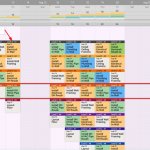The brain is like a muscle. In order to keep it strong and healthy, you have to stretch and apply it. People who often challenge and exercise their brains are more likely to stay sharp. Additionally, many studies have shown that there are steps you can take to prevent cognitive decline and reduce the risk of developing dementia. The marketing team at Touchplan has compiled some of the best steps to exercise your brain and keep your mind sharp.
Be Social
It has been known for a long time that having social connections helps protect against the negative impacts of aging. In a 2007 study, researcher Valerie Crooks found that women who had a larger social network and daily social interactions had a substantially lower risk of developing dementia, even when she factored in age and hormone use. Joining a group, taking classes, or scheduling regular visits and phone/zoom calls with friends and family all help to build social connections and fight the effects of aging. Healthline has more on the benefits of social interaction for healthy aging here.
Stimulate Your Brain
Scientists generally agree that keeping your mind active and challenged is good for brain health. Like all other muscles in our body, we can use the brain repeatedly to strengthen and improve its function. But what, exactly, is the best way to do that? Doing certain brain activities can help boost your memory, concentration, and focus. This makes daily tasks easier and quicker to do and keeps your brain active. Check out this article from Healthline for 13 brain exercises to keep you sharp.
Exercise
Everyone knows that moderate amounts of exercise will help your heart and lungs, but there is increasing evidence in support of the idea that exercise will also improve your brain. In a review of 50 scientific studies, researchers Arthur Kramer and Kirk Erickson found that regular aerobic exercise improved brain functioning for healthy people, even if it was just walking two to three days a week. The study also found that patients in the early stages of Alzheimer’s disease who were more aerobically fit had less brain atrophy than those who were less fit. Click here to learn more about the study. Dr. Scott McGinnis of Harvard Medical School also says that he recommends establishing exercise as a habit, almost like taking a prescription medication and reminds folks to be patient as it normally takes about six months to start reaping the cognitive benefits of exercise. More on his research here.
Participate in the Arts
Exercising and thinking games may seem obvious to improve cognitive functioning, but even activities such as singing and dancing can help keep your mind sharp. Ongoing research suggests that participating in the arts may improve the health, well-being, and independence of older adults. Activities like participating in community choirs can reduce feelings of loneliness and increased interest in life. Research on music, theater, dance, creative writing, and other participatory arts shows promise for improving older adults’ quality of life and well-being, from better cognitive function, memory, and self-esteem to reduced stress and increased social interaction. The National Institute on Aging has more on the impacts of art on aging here.
There’s An App for That
Living in the digital age we can also look to our phones, on occasion, for ways to keep our minds sharp. There are several apps like Luminosity and Fit Brains Trainer that can promote mental health.
If you missed our last wellness post be sure to read Helpful Tips to Manage Stress and Improve Quality of Life and be sure to check back every other Wednesday for another #WellnessWednesday blog post!










